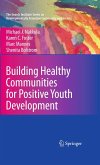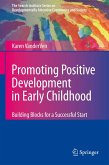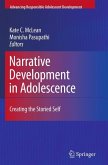The Healthy Communities Healthy Youth (HC HY) project has provided grassroots support for the creation of robust, welcoming environments not only for children and adolescents at risk but for all youth. Building Healthy Communities for Positive Youth Development explains the Developmental Assets framework in depth and demonstrates how eight local initiatives across the country have adapted and implemented it to fit the unique cultures and resources of their neighborhoods and the needs and strengths of their young people. Stakeholders collaborating in the process include parents, educators, politicians, service providers, law enforcement, volunteers, and as active participants instead of merely recipients of services youth themselves.
In this visionary book, the authors provide readers with a flexible, living blueprint for promoting the well-being of children and teenagers. Areas of coverage include:
Core themes of the eight HC HY initiatives.
The use of an asset-based common language among participants.
Building common ground among the various sectors involved in the initiatives.
The varied roles of young people within the initiatives.
Research design and methodology; data collection and interpretation.
Funding issues and challenges.
The mission outlined in Building Healthy Communities for Positive Youth Development fits the interests of a wide range of professionals, including developmental psychologists; child, youth, and family service professionals; clinical child and school psychologists; and allied education and mental health practitioners working with children and adolescents.
In this visionary book, the authors provide readers with a flexible, living blueprint for promoting the well-being of children and teenagers. Areas of coverage include:
Core themes of the eight HC HY initiatives.
The use of an asset-based common language among participants.
Building common ground among the various sectors involved in the initiatives.
The varied roles of young people within the initiatives.
Research design and methodology; data collection and interpretation.
Funding issues and challenges.
The mission outlined in Building Healthy Communities for Positive Youth Development fits the interests of a wide range of professionals, including developmental psychologists; child, youth, and family service professionals; clinical child and school psychologists; and allied education and mental health practitioners working with children and adolescents.
"Building Healthy Communities for Positive Youth Development comes to us during a time when many are calling for significant school reform and worrying about growing rates of school dropouts and cases of bullying and youth suicides. Whereas many schools are
instituting antibullying programs or "dare to care" suicide prevention efforts or offering alternative programs for students at risk of dropping out, they by and large follow the deficit model approach.
Nakkula et al. remind us that canned programs of reform, built on a view of youths as being diagnosed with "problems" to be solved, well intentioned though they may be, will never prove so powerful as that group of committed individuals-the religious leaders, the teachers, the business owners-who can reflect on their deeply held beliefs and then thoughtfully act in new ways that support healthy development of our youths and our communities."
- Ellen L. Nuffer
PsycCRITIQUES - July 27, 2011, Vol. 56, Release 30, Article 6
instituting antibullying programs or "dare to care" suicide prevention efforts or offering alternative programs for students at risk of dropping out, they by and large follow the deficit model approach.
Nakkula et al. remind us that canned programs of reform, built on a view of youths as being diagnosed with "problems" to be solved, well intentioned though they may be, will never prove so powerful as that group of committed individuals-the religious leaders, the teachers, the business owners-who can reflect on their deeply held beliefs and then thoughtfully act in new ways that support healthy development of our youths and our communities."
- Ellen L. Nuffer
PsycCRITIQUES - July 27, 2011, Vol. 56, Release 30, Article 6
"Building Healthy Communities for Positive Youth Development comes to us during a time when many are calling for significant school reform and worrying about growing rates of school dropouts and cases of bullying and youth suicides. Whereas many schools are
instituting antibullying programs or "dare to care" suicide prevention efforts or offering alternative programs for students at risk of dropping out, they by and large follow the deficit model approach.
Nakkula et al. remind us that canned programs of reform, built on a view of youths as being diagnosed with "problems" to be solved, well intentioned though they may be, will never prove so powerful as that group of committed individuals-the religious leaders, the teachers, the business owners-who can reflect on their deeply held beliefs and then thoughtfully act in new ways that support healthy development of our youths and our communities."
- Ellen L. Nuffer
PsycCRITIQUES - July 27, 2011, Vol. 56, Release 30, Article 6
instituting antibullying programs or "dare to care" suicide prevention efforts or offering alternative programs for students at risk of dropping out, they by and large follow the deficit model approach.
Nakkula et al. remind us that canned programs of reform, built on a view of youths as being diagnosed with "problems" to be solved, well intentioned though they may be, will never prove so powerful as that group of committed individuals-the religious leaders, the teachers, the business owners-who can reflect on their deeply held beliefs and then thoughtfully act in new ways that support healthy development of our youths and our communities."
- Ellen L. Nuffer
PsycCRITIQUES - July 27, 2011, Vol. 56, Release 30, Article 6








